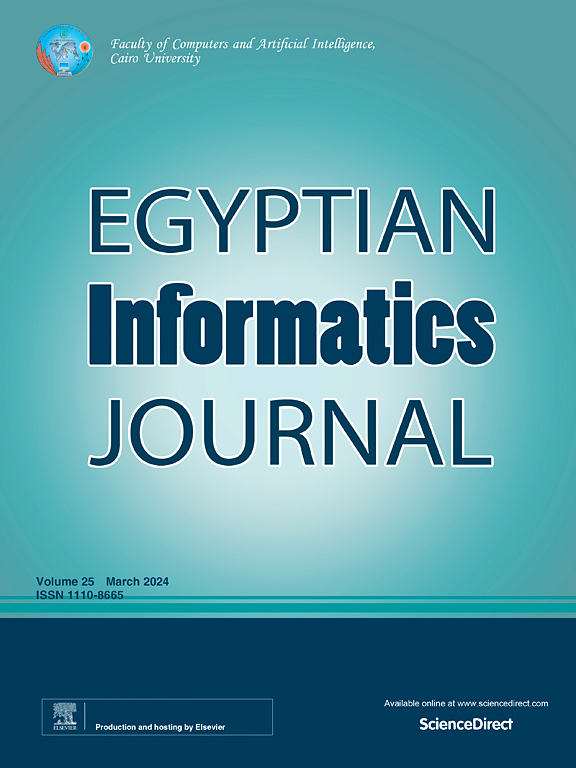Improving english vocabulary learning with a hybrid deep learning model optimized by enhanced search algorithm
IF 5
3区 计算机科学
Q1 COMPUTER SCIENCE, ARTIFICIAL INTELLIGENCE
引用次数: 0
Abstract
In this study, we propose a novel deep-learning architecture that is designed to facilitate vocabulary acquisition for second-language learners of English. A hybridized model combining a tuned LSTM and CaffeNet with the EHGS algorithm. The EHGS was selected from the other algorithms including Manta Ray Foraging Optimization (MRFO), Equilibrium Optimizer (EO), Marine Predators Algorithm (MPA), Runge Kutta Optimizer (RUN), and White Shark Optimizer (WSO) since it is the most balanced algorithm out of all of them in terms of exploration vs. exploitation. From a methodological perspective, we adopt a hybrid CNN-based structural approach to enhance the learning of features and the effective processing of temporal information. It uses Oxford English Corpus and WordNet datasets for pre-training to make sure it is robust and effective. The specified model also outperformed very few with comparative evaluations using metrics of accuracy, F1-score, precision, and mean squared error (MSE). Our model showed an accuracy of 0.92 and an F1-score of 0.91 which far surpassed traditional Gaussian and LSTM methods (accuracy of 0.85 and F1-score 0.84). These findings make clear more advanced NLP techniques that can be applied for the development of intelligent education technology that can help non-native English speakers learn new vocabulary at an unprecedented rate. The better results provided by the proposed model mainly reveal its applicability in novel learning environments and offer students personalized, adapted, and immersive learning experiences.
利用增强搜索算法优化的混合深度学习模型提高英语词汇学习
在这项研究中,我们提出了一种新的深度学习架构,旨在促进英语第二语言学习者的词汇习得。将LSTM和CaffeNet与EHGS算法相结合的混合模型。EHGS从其他算法中被选中,包括蝠鲼觅食优化(MRFO)、平衡优化(EO)、海洋掠食者算法(MPA)、龙格库塔优化(RUN)和白鲨优化(WSO),因为它在探索和利用方面是所有算法中最平衡的。从方法论的角度来看,我们采用了一种基于cnn的混合结构方法来增强特征的学习和对时间信息的有效处理。它使用牛津英语语料库和WordNet数据集进行预训练,以确保它的鲁棒性和有效性。使用准确度、f1评分、精度和均方误差(MSE)等指标进行比较评估时,指定的模型也表现得非常好。该模型的准确率为0.92,f1得分为0.91,远远超过了传统的高斯和LSTM方法(准确率为0.85,f1得分为0.84)。这些发现表明,更先进的NLP技术可以应用于智能教育技术的发展,帮助非英语母语人士以前所未有的速度学习新词汇。该模型的较好结果主要体现了其在新型学习环境中的适用性,为学生提供了个性化、适应性和沉浸式的学习体验。
本文章由计算机程序翻译,如有差异,请以英文原文为准。
求助全文
约1分钟内获得全文
求助全文
来源期刊

Egyptian Informatics Journal
Decision Sciences-Management Science and Operations Research
CiteScore
11.10
自引率
1.90%
发文量
59
审稿时长
110 days
期刊介绍:
The Egyptian Informatics Journal is published by the Faculty of Computers and Artificial Intelligence, Cairo University. This Journal provides a forum for the state-of-the-art research and development in the fields of computing, including computer sciences, information technologies, information systems, operations research and decision support. Innovative and not-previously-published work in subjects covered by the Journal is encouraged to be submitted, whether from academic, research or commercial sources.
 求助内容:
求助内容: 应助结果提醒方式:
应助结果提醒方式:


